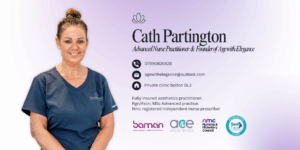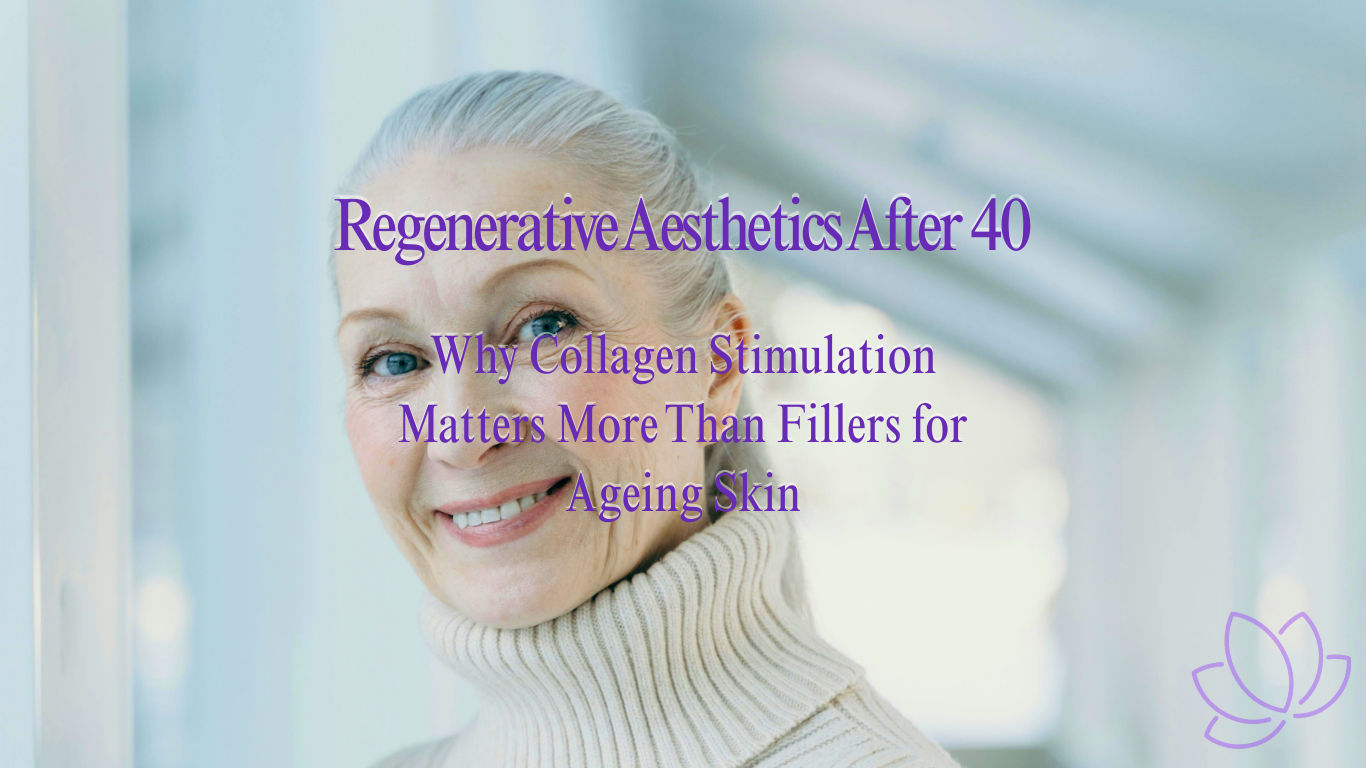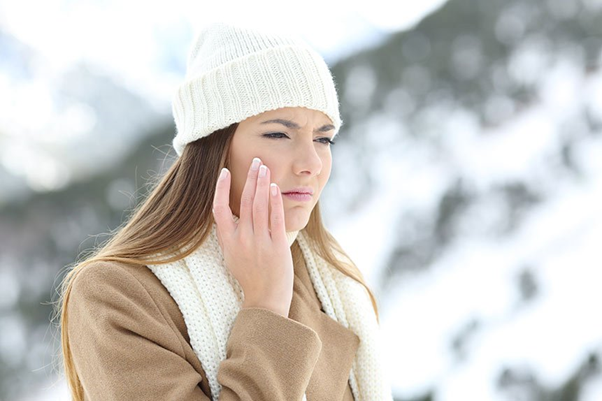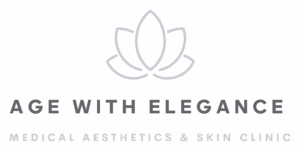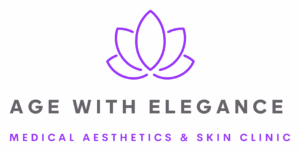

Menopause is a time of great change — emotionally, physically, and hormonally. For many women, the skin is one of the first places these changes show up. While ageing itself plays a role, the hormonal shifts of menopause accelerate certain processes, leaving skin looking and feeling very different to how it once did.
This blog explains the science behind menopausal skin changes and the treatments that can support it — so you feel informed, reassured, and empowered.
The Science of Menopausal Skin
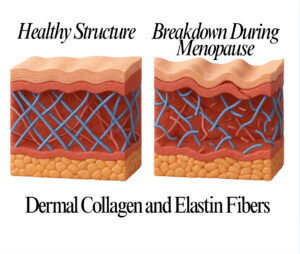
The main driver is the decline in oestrogen, a hormone that plays a vital role in skin health.
• Collagen & Elastin Decline
Oestrogen supports fibroblasts, the cells that produce collagen and elastin. Without it, collagen production slows dramatically. Studies suggest up to 30% of skin collagen is lost in the first 5 years post-menopause. This leads to fine lines, sagging, and loss of volume.
• Thinning of the Dermis
Skin becomes up to 1.5% thinner per year after menopause, making it more delicate and prone to damage.
• Reduced Sebum & Hyaluronic Acid
Sebum production slows, leading to dryness and roughness. The natural production of hyaluronic acid also declines, leaving skin less plump and hydrated.
• Slower Repair & Healing
Wounds and blemishes take longer to heal, and the skin barrier becomes weaker.
• Pigmentation & Uneven Tone
Hormonal shifts combined with cumulative sun exposure trigger age spots and uneven pigmentation.
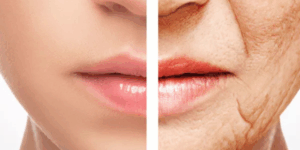
The Role of Skin Analysis
Menopausal skin is not the same for everyone. That’s why using a skin analyser in clinic is so valuable. It captures images beneath the skin’s surface, assessing:
• Hydration levels
• Collagen density
• UV and sun damage
• Pigmentation and age spots
• Pore size and skin texture
This data allows me to create a plan tailored to your skin — rather than guessing or using a generic approach.
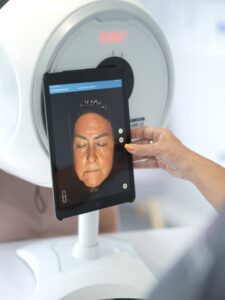
Supporting Skin at Home
Medical-grade skincare should be your foundation. Over-the-counter products often sit on the surface, while medical skincare like Obagi penetrates deeper to work at a cellular level. Obagi’s systems target:
• Dryness and lack of radiance
• Uneven pigmentation
• Fine lines and skin laxity
• Barrier repair and resilience
With consistent use, patients often see transformative improvements in both appearance and skin health.
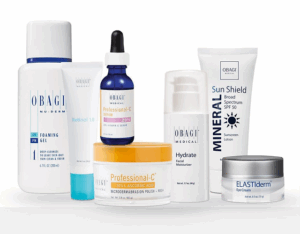
In-Clinic Treatments for Menopausal Skin
Here are some of the most effective treatments I offer for patients navigating this stage:
-
Skin Boosters : Injected hydration that restores suppleness and improves skin quality.
-
Polynucleotides: DNA-based therapy that stimulates regeneration, improves elasticity, and supports long-term skin health.
-
PRF (Platelet-Rich Fibrin): Uses your own platelets to trigger healing and collagen stimulation naturally.
-
Exosomes: Tiny messengers that encourage cell repair, reduce inflammation, and support overall rejuvenation.
-
Obagi Medi-Facials & Blue Peel Radiance: Professional treatments that exfoliate, smooth, and improve texture and pigmentation.
-
HIFU: A non-surgical lifting treatment that works deep beneath the skin to stimulate collagen and tighten.
-
BioSpicule Therapy: Improves skin turnover, texture, and tone using natural marine extracts.
- Microneedling with RadioFrequency: Firms, smooths and restores elasticity where collagen has been lost
Each treatment can be used alone or in combination depending on your skin analysis and personal goals.
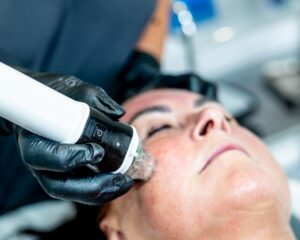
Lifestyle & Self-Care
Supporting your skin isn’t just about treatments. Lifestyle plays a role too:
• Protect skin daily with broad-spectrum SPF
• Stay hydrated
• Eat a diet rich in antioxidants and omega-3s
• Prioritise good sleep and stress management
These small but powerful habits complement professional treatments.
Final Thoughts
Menopause changes the skin — but with the right knowledge and care, it doesn’t have to define it. Whether it’s through advanced skincare, regenerative treatments, or lifestyle support, it’s possible to maintain skin that feels healthy, resilient, and vibrant through this stage of life and beyond.
If you’d like to explore your skin in more detail, the best place to start is with a consultation and skin analysis. From there, we can create a personalised plan that fits you, your skin, and your lifestyle.
👉 Book your consultation here
